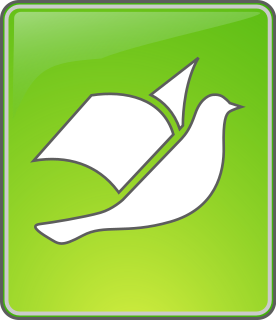This article does not cite any sources .(March 2015) (Learn how and when to remove this template message) |
A free standard or libre standard is a standard whose specification is publicly available. The concept of Free/Libre standards emerged in the software industry as a reaction against closed de facto "standards" which served to reinforce monopolies. Users of a free standard have the same four freedoms associated with free software, and the freedom to participate in its development process. The standardisation process typically requires a complete free software reference implementation, which demonstrates that it is implementable and renders it usable. A libre standard is not patent-encumbered.
A technical standard is an established norm or requirement in regard to technical systems. It is usually a formal document that establishes uniform engineering or technical criteria, methods, processes, and practices. In contrast, a custom, convention, company product, corporate standard, and so forth that becomes generally accepted and dominant is often called a de facto standard.

Free software or libre software is computer software distributed under terms that allow users to run the software for any purpose as well as to study, change, and distribute it and any adapted versions. Free software is a matter of liberty, not price: users—individually or in cooperation with computer programmers—are free to do what they want with their copies of a free software regardless of how much is paid to obtain the program. Computer programs are deemed free insofar as they give users ultimate control over the first, thereby allowing them to control what their devices are programmed to do.
Contents
The Free Standards Group, for example, developed standards and released them under the GNU Free Documentation License with no cover texts or invariant sections. Reference implementations and test suites, etc. were released as Free software.
The Free Standards Group was an industry non-profit consortium chartered to primarily specify and drive the adoption of open source standards. It was founded in 1998.

The GNU Free Documentation License is a copyleft license for free documentation, designed by the Free Software Foundation (FSF) for the GNU Project. It is similar to the GNU General Public License, giving readers the rights to copy, redistribute, and modify a work and requires all copies and derivatives to be available under the same license. Copies may also be sold commercially, but, if produced in larger quantities, the original document or source code must be made available to the work's recipient.
In the software development process, a reference implementation is the standard from which all other implementations and corresponding customizations are derived. An improvement to a reference implementation reflects an unchanging specification. Conversely, a failed attempt at an implementation may prove that the specification is not suitable and needs improvement itself. Testing the implementation-vs.-specification relationship further enhances the production's inter-process efficiencies:
A reference implementation is, in general, an implementation of a specification to be used as a definitive interpretation for that specification. During the development of the ... conformance test suite, at least one relatively trusted implementation of each interface is necessary to (1) discover errors or ambiguities in the specification, and (2) validate the correct functioning of the test suite.
Characteristics of a Reference Implementation:
- Developed concurrently with the specification and test suite;
- Verifies that specification is implementable;
- Enables the test suite to be tested;
- Serves as a Gold Standard against which other implementations can be measured;
- Helps to clarify the intent of the specification in situations where conformance tests are inadequate
Similar processes are now followed by the various "open" standards bodies, the word "open" having been popularised by the "open source" movement in order to engage powerful industry players







